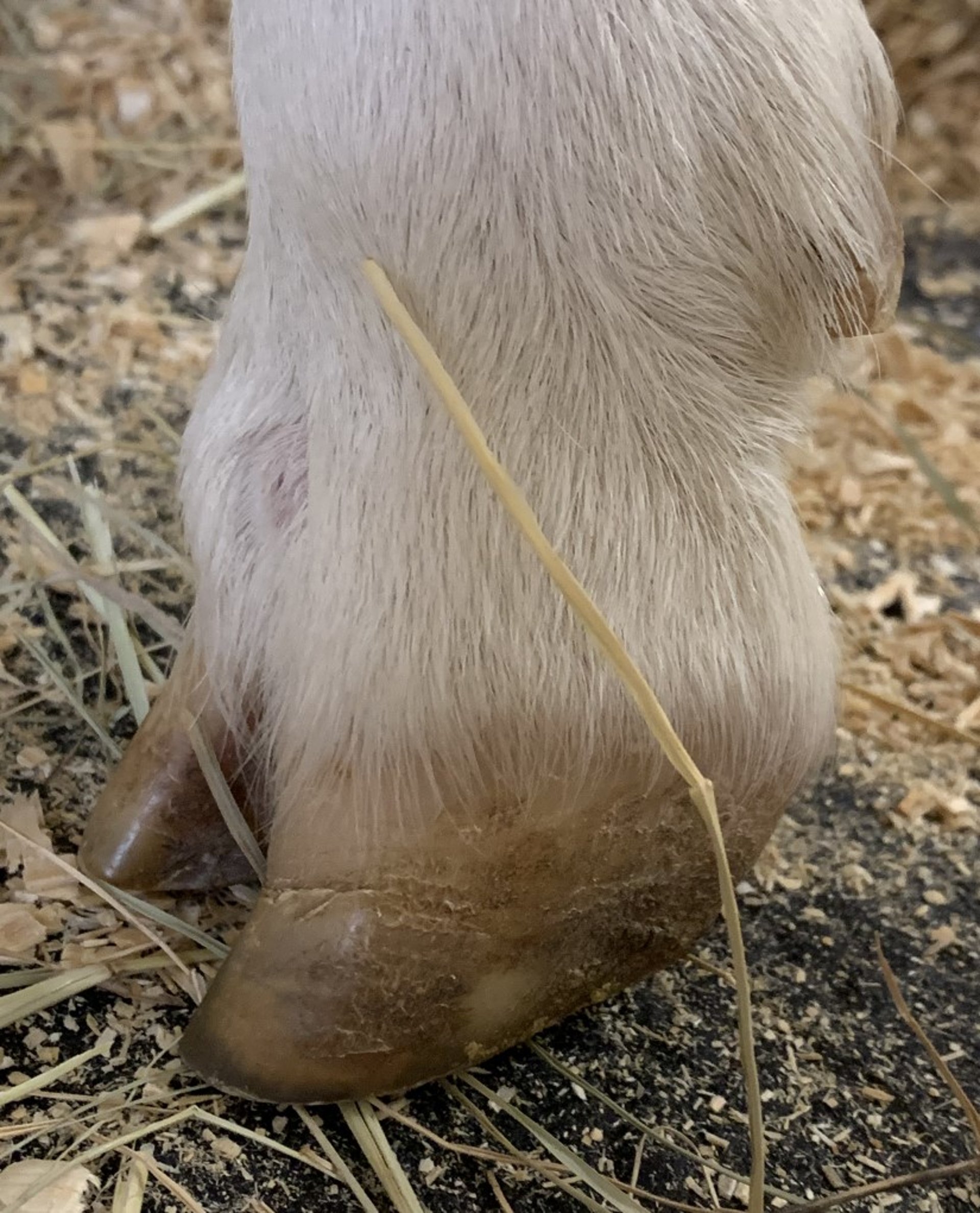PROFESSIONAL VERSION
Horizontal cracks in hoof wall, sheep
Nonseptic laminitis develops for similar reasons in sheep as in other ruminants, including due to consumption of large amounts of carbohydrates or from severe, systemic disease.
Forelimbs are affected most commonly; however, all four hooves can be affected. Lameness is often severe, and the affected digits may be hot and sensitive to touch. Affected sheep may prefer to be recumbent or rest on the carpus.
Mainstays of treatment are administration of analgesics (eg, meloxicam or flunixin meglumine), providing soft footing, and ice baths or cold hosing of the affected limbs. Prognosis for recovery is usually good; however, hoof growth may be altered.
Test your Knowledge nowTake a Quiz!
